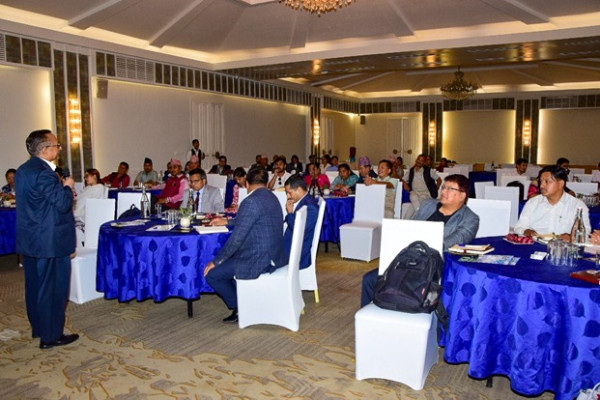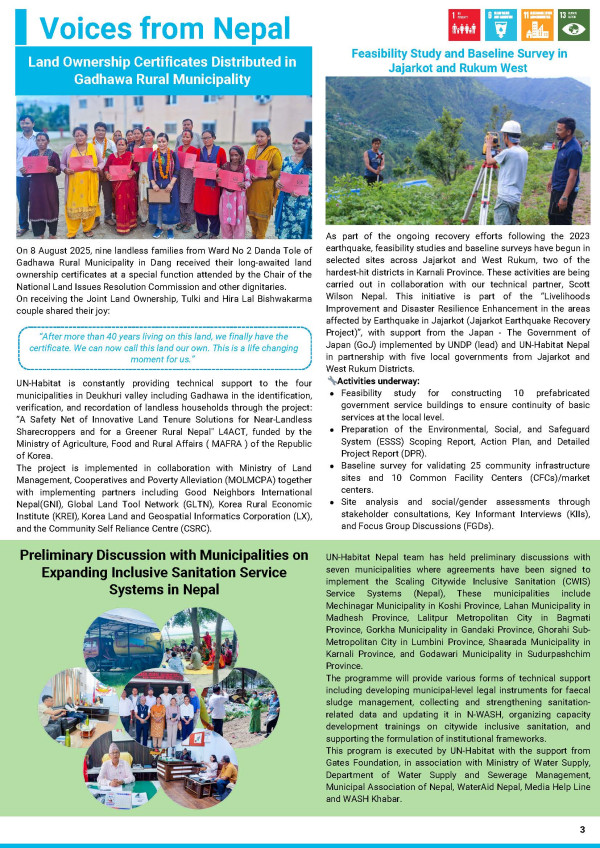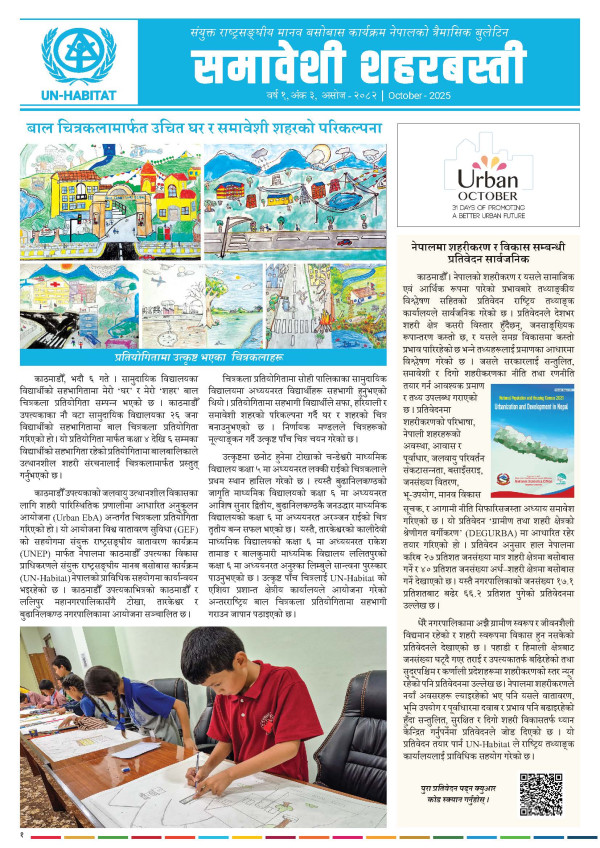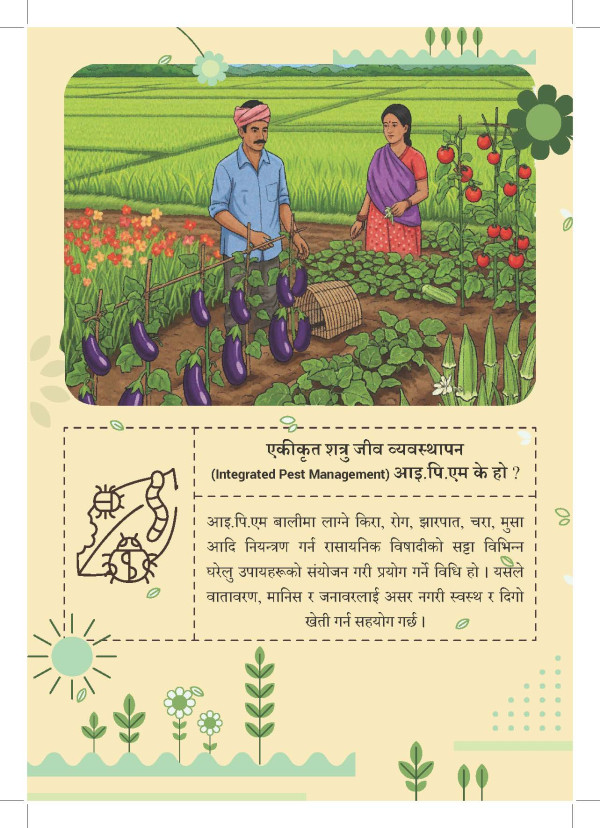Strengthening Climate Resilience in Kathmandu Valley Through Ecosystem-Based Adaptation

In collaboration with GEF, UNEP, and UN-Habitat, Kathmandu Valley Development Authority (KVDA) organized a one-day training on “Understanding Ecosystem-Based Adaptation for Climate-Resilient Development in the Kathmandu Valley” for elected representatives and political leaders of Tokha Municipality on 20 August 2025. This event was organized as part of the ongoing project, Urban Ecosystem-based Adaptation for Climate-resilient Development in the Kathmandu Valley, which aims to strengthen urban resilience to climate change in the Kathmandu Valley.
The main goal of this training event is to strengthen the understanding of elected representatives and political leaders on Ecosystem-based Adaptation (EbA) in the urban context of the Kathmandu Valley. It aims to raise awareness on the concept of EbA and the need of inclusive participation in integrating EbA into municipal planning and budgeting process.
The event was chaired by Ms. Januka Dhakal, Development Commissioner of KVDA, and honored by the presence of the Chief Guest, Honorable Minister for Health and Population, Mr. Pradeep Poudel. He was joined by several distinguished guests, including members of the Bagmati Provincial Assembly, representatives from the Ministry of Urban Development (MoUD), the Department of Urban Development and Building Construction (DUDBC), as well as the District Commissioners of Kathmandu, Lalitpur, and Bhaktapur, among others. Ms. Januka Dhakal welcomed to all participants and highlighted that their presence at the training reflects a strong commitment to building a sustainable and resilient future for the Kathmandu Valley. In his address, the Chief Guest, Mr. Pradeep Poudel, underscored the dual challenges confronting the valley: the pressures of rapid urbanization and the escalating impacts of climate change. He noted that issues such as flash floods, water scarcity, and heat stress pose significant threats to both local communities, health and the valley’s cultural heritage. Mr. Poudel emphasized that EbA presents an effective, nature-based solution to these challenges—leveraging natural ecosystems like rivers, green spaces, and wetlands to enhance resilience, reduce risks, and foster a healthier, more livable urban environment for all.
Dr. Maheshwar Dhakal, Joint Secretary of Ministry of Forest and Environment (MoFE)/ Climate Change Management Division (CCMD), then conducted a technical session centered on critical elements of the national policy framework, including the National Climate Change Policy, National Adaptation Plan, and Nationally Determined Contributions. He concluded his presentation by providing practical examples, reviewing pertinent policy frameworks, and emphasizing opportunities to incorporate Ecosystem-based Adaptation (EbA) into urban planning and governance. Then, Mr. Navaraj Pyakurel, Joint Secretary at the Ministry of Urban Development (MoUD), delivered a comprehensive presentation on the understanding of climate change and its far-reaching impacts across various thematic sectors. He provided an in-depth overview of how changing climate patterns are affecting critical areas such as water resources, infrastructure, urban development, agriculture, and public health.
The technical session continued with an insightful presentation by Mr. Raju Pandit Chhetri, Director of Prakriti Resources Center, who focused on policy provisions at the local government level in Nepal for responding to climate change. He provided a detailed analysis of how local governments are positioned within the national climate governance framework, highlighting their roles, responsibilities, and the enabling legal instruments that empower them to take climate action. Mr. Chhetri also examined the challenges and opportunities in implementing climate-responsive policies at the local level. In addition, he shed light on the available climate financing mechanisms—both domestic and international—that support local climate adaptation and mitigation initiatives. Further enriching the session, Mr. Pem Kandel, Former Secretary at the Ministry of Forests and Environment (MoFE), and Mr. Sushil Kumar Karki, Environmental Consultant, delivered insightful presentations focused on EbA and its relevance in the context of urban climate resilience. Mr. Kandel elaborated on the concept and importance of EbA, emphasizing its role as a nature-based solution for addressing the growing risks posed by climate change in urban areas. He highlighted how integrating ecosystems into urban planning can mitigate climate impacts such as heatwaves, flooding, and poor air quality, while also enhancing biodiversity and community well-being. Following this, Mr. Sushil Kumar Karki focused on the practical aspects of mainstreaming EbA into municipal-level budgeting and planning processes. He outlined strategies for incorporating EbA measures into local development plans, emphasizing the need for cross-sectoral coordination, capacity building, and policy alignment.
Ms. Shanta Khanal, Ward Chair of Tokha-6, expressed her appreciation for the valuable insights gained on the EbA concept. She commended the engaging and participatory learning approach, highlighting the importance of replicating such programs at the community level and underscoring the need for continued Urban EbA interventions to enhance the municipality's resilience.
The workshop was structured as an engaging and interactive learning experience, organized into several thematic modules to provide a comprehensive understanding of Urban EbA. Through a combination of presentations and discussions, participants deepened their understanding of how EbA can be effectively implemented in urban settings and gained the knowledge and tools necessary to advocate for and apply these solutions within their respective roles.
This collaborative effort between national and local
governments reflects a strong commitment to accelerating local climate action
through an ecosystem-based approach, aimed at building sustainable and
resilient cities.





